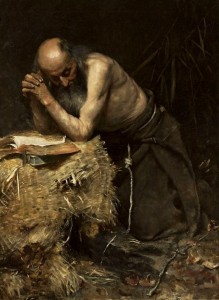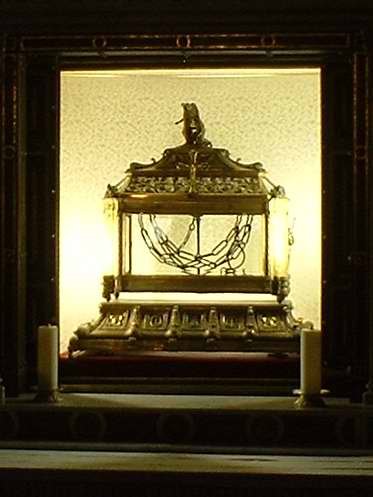EZ 17:22-24
PS 92:2-3, 13-14, 15-16
2 COR 5:6-10
MK 4:26-34
 The “kingdom of God” is the central message of Jesus’ ministry. The “kingdom of God” refers to God’s reign over all creation, which is both present in Jesus’ ministry (especially his healings) but is also future. The Lord’s Prayer is a call for the fullness of God’s reign, when things will be done on earth as perfectly as they are in heaven.
The “kingdom of God” is the central message of Jesus’ ministry. The “kingdom of God” refers to God’s reign over all creation, which is both present in Jesus’ ministry (especially his healings) but is also future. The Lord’s Prayer is a call for the fullness of God’s reign, when things will be done on earth as perfectly as they are in heaven.
Our gospel for this week focuses on a particular dimension of the kingdom: its progressive nature. Jesus tells us that it is like the seeds sown in the ground that sprout and grow though we know not how. And famously:
It is like a mustard seed that, when it is sown in the ground,
is the smallest of all the seeds on the earth.
But once it is sown, it springs up and becomes the largest of plants
and puts forth large branches,
so that the birds of the sky can dwell in its shade.
By speaking this way, Jesus reminds us of the both/and nature of the kingdom. It is both here (that is, to continue the metaphor, the seed is sown) but it is “not yet” in the sense that it is not yet harvest time and we do not yet fully see what these seeds will become.
The fact that the kingdom is both here and not yet fully manifest is a helpful correction on tendencies to associate the kingdom either with the church or the world order. Both the ecclesial and political dimensions of the kingdom are very much a part of Jesus’ preaching. The church should reflect kingdom values (i.e. catholicity, love, inclusiveness, and a proper hierarchy of values) but we should not be surprised when she fails to fully manifest those values. So too should we work to create a social order marked by those same values, but again, we should not be surprised when politics fails to create the sort of society we must continue to work for. Our second reading reminds us of the importance of our own actions in helping to build up the kingdom. Paul writes that each us us will “receive recompense, according to what he did in the body, whether good or evil.” But we should not expect that our own efforts will ever yield the fulness of the kingdom. The kingdom is future. As the late Dan Harrington writes in Jesus and Virtue Ethics,
In the meantime, we await it with hope for the fullness of that kingdom and try to act in a way that is appropriate to its claims. The kingdom is the horizon against which Christian life is to be lived, and it is the goal toward which all must point.
This week’s gospel also remind us of another dimension of the kingdom, that is, its giftedness. Despite the emphasis on our own efforts in laboring for the kingdom, Jesus reminds us that it is not something we bring about on our own. Ultimately, it is God’s work in a similar way to which it is God who ultimately makes plants grow, though the farmer’s labor remains critical. Here again, the both/and nature of the kingdom (that it is both a product of our own efforts and gift from God) reveal the importance of another both/and: social justice and prayer. While we are called to build a just society in both the ecclesial and the political sense, marked by respect for human dignity, care for the poor and marginalized, and concern for all creation, we should not forget the importance of prayer which both reminds us of the need for God’s grace to achieve our goal and the importance of conforming our own expectations to God’s will.
Prayer is such an important way of putting our own power in check in light of God’s sovereignty. There are so many problems that touch us that make us feel powerless: a loved one’s failing health, problems in a dear friend’s marriage, a family member’s drug and alcohol abuse, a friend’s loss of faith, the persecution of people in Iraq and Syria. All these things remind us that the kingdom is not yet fully present, and by our own efforts, we can do nothing about it. But by bringing these things to prayer, we not only reveal to ourselves and to others that the fulness of God’s reign is a gift, we also learn ever more perfectly how to pray as Jesus taught us: Thy kingdom come.



